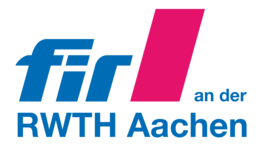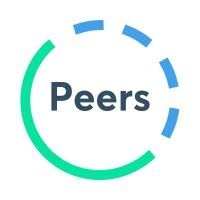pro-kom
Prognosis-based competence evaluation (Project processing ist carried out by RIF e.V., Production Systems Department)
The aim of the 'pro-kom' research project is to enable SMEs to identify competence deficits and future competence needs at an early stage and to close existing gaps. With the help of a competence forecasting tool, SMEs should thus be enabled to maintain their competitiveness in the current, continuously changing world of work.
Initial Situation
Digitalization, automation, the complexity of markets and demographic change are currently causing major changes in the world of work. These changes require a variety of new competencies. Often, a lack of specialist competencies poses a challenge to the further development and digitization of companies. In order to successfully manage this change, it is essential to identify competence requirements at an early stage. This allows targeted measures and development opportunities to be derived. Often, however, SMEs in particular cannot afford such individualized and forecast-based competence management. Therefore, there is an urgent need for support for SMEs in analyzing and deriving the competencies relevant for the future.
Solution Approach
Based on a comprehensive analysis conducted both at the meta level and at the individual company level, a catalog of current and future activities and competencies is created. On this basis, a forecast-based competency model is developed that illustrates the relationships between industry-specific as well as company-specific trends and competencies. With the help of machine learning, a procedure will be developed to enable automatic forecasting of competencies. Finally, this procedure will be transformed into a competency forecasting tool that takes into account both industry-specific and company-specific factors to derive future competencies. In addition, the tool will be validated and companies will receive support and guidance during its implementation.
Expected Results and Benefits for the Target Group
The central result of this project is the development of an automated forecasting tool that supports companies in identifying their future competence needs. In addition, the competence forecasting tool will be tested and validated, and a guide and digital learning units will be created to provide accompanying support for users.
The competence forecasting tool opens up the possibility for SMEs to identify existing competence gaps at an early stage based on industry and company-specific market analyses. On this basis, they can select suitable training measures to close these gaps. This enables SMEs to respond to changes at an early stage and thus exploit potential for productivity and efficiency gains. At the same time, the provision and accessibility of this information for SMEs helps to secure the competitiveness of German SMEs
Research, Development and Application Partners
Funding Reference
The IGF project 22572 N of the Research Association FIR e. V. at the RWTH Aachen University and of RIF Instituts für Forschung und Transfer e. V. is funded via the AiF within the framework of the programme for the funding of cooperative industrial research (IGF) by the Federal Ministry for Economic Affairs and Climate Action (BMWK) on the basis of a resolution of the German Bundestag.


![[Translate to English:] [Translate to English:]](/storages/zentraler_bilderpool/_processed_/2/6/csm_Altes_Maschinenbau-Gebaeude_3a1a87015a.jpg)


















